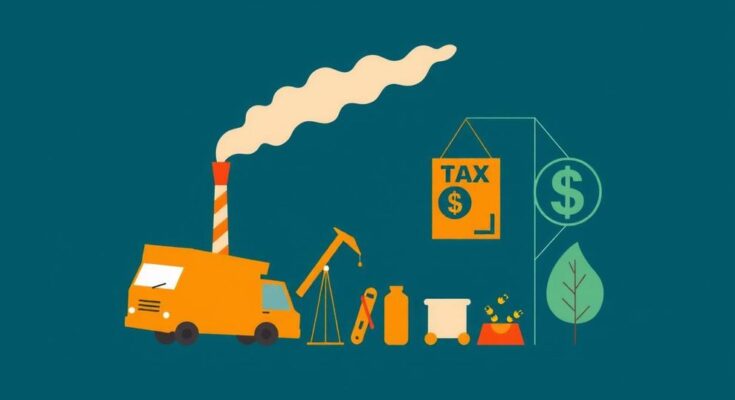The article advocates for taxing fossil fuels and shipped goods to finance climate resilience efforts in vulnerable developing nations. It emphasizes the urgent need for an international funding mechanism to support these countries, drawing parallels with historical environmental compensation frameworks. The proposed levy has the potential to generate substantial funding for loss and damage caused by climate change, addressing the financial strain on nations like Grenada post-natural disasters.
The need for a systematic approach to funding climate resilience is pressing, particularly for developing nations that are disproportionately affected by climate change. An effective measure could involve levying taxes on fossil fuels and shipped goods to establish a comprehensive fund dedicated to loss and damage mitigation. This approach echoes past successes in international compensation mechanisms following environmental disasters, emphasizing that global cooperation is imperative in addressing climate-related challenges. Such a levy, even at a modest rate, has the potential to generate substantial resources to aid vulnerable countries as they navigate the repercussions of climate-induced financial instability.
The recent discussions following the UN Climate Change Conference highlight the critical state of regions like Grenada, which are grappling with the fallout from devastating hurricanes. The invocation of debt-relief clauses provides transient relief; however, there exists a pressing requirement for sustainable funding mechanisms that can prevent these nations from plunging deeper into debt. An initiative to impose a minimal levy on fossil fuel and good transportation could provide the necessary financial backbone and accountability to support these nations amid escalating climate threats.
The article addresses the urgent financial needs of developing countries facing devastating impacts from climate change, such as increased natural disasters and rising sea levels. These nations are often held accountable for climate change effects despite contributing minimally to the problem. Therefore, an effective international funding structure is required, one that responsibly levies contributions from those who have historically been the primary emitters of greenhouse gases. By implementing a tax on fossil fuels and goods transported globally, significant financial resources could be mobilized to support climate resilience and recovery efforts in vulnerable regions.
To effectively combat the consequences of climate change, it is imperative that the international community enacts a tax on fossil fuels and goods transported by sea. This levy would not only finance the loss and damage fund for developing countries but also create a framework of accountability for those who have largely contributed to global emissions. By acknowledging the disproportionate impacts experienced by these nations and responding with equitable financial strategies, we can take a crucial step toward fostering global climate resilience.
Original Source: www.aljazeera.com




